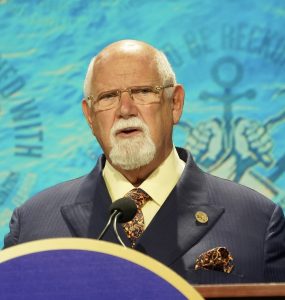The International Chamber of Shipping (ICS) has submitted a detailed, fit-for-purpose proposal to shipping’s global regulator, the UN International Maritime Organization (IMO), for a Zero Emission Shipping Fund (ZESF).
In recognition of the urgency to move forward with workable solutions to meet ambitious net zero targets, shipowners globally have agreed to mandatory contributions on ships’ greenhouse gas (GHG) emissions to raise billions of dollars annually. The purpose is to accelerate transition by the global commercial shipping fleet to net zero emissions by 2050 and support the maritime GHG reduction efforts of developing countries.
The ICS updated proposal is co-sponsored by Bahamas and Liberia (two of the world’s largest flag State administrations, measured in gross tonnage).
The proposal builds on the “feebate” concept put forward by the Government of Japan and support from EU States at IMO for a flat rate “levy-based” global contribution system. Significantly, the updated proposal adds a structure for transparency and accountability for how the billions of dollars raised will be used, including those funds to be allocated for use in developing countries.
ICS Secretary General Guy Platten stressed the importance of global involvement in the transition to net-zero shipping.
“A global GHG pricing mechanism for shipping urgently needs to be agreed on next year, which will de-risk investment in zero GHG marine fuels and provide billions of dollars of funds to support developing countries,” said Mr. Platten.
The proposal will be reviewed by IMO Member States in their next round of GHG negotiations in March. Governments have already committed to developing a GHG pricing mechanism for international shipping by 2025. If approved, the ZESF will be instrumental in achieving net-zero GHG emissions from shipping by or close to 2050.
The proposal also suggests using contributions from ships per tonne of CO2e emitted to reduce the cost gap between zero GHG fuels and conventional fuel oil. This approach would provide financial rewards (“feebates”) to ships for the GHG emissions they prevent by using these new marine fuels.
(Dreamstime photo)








